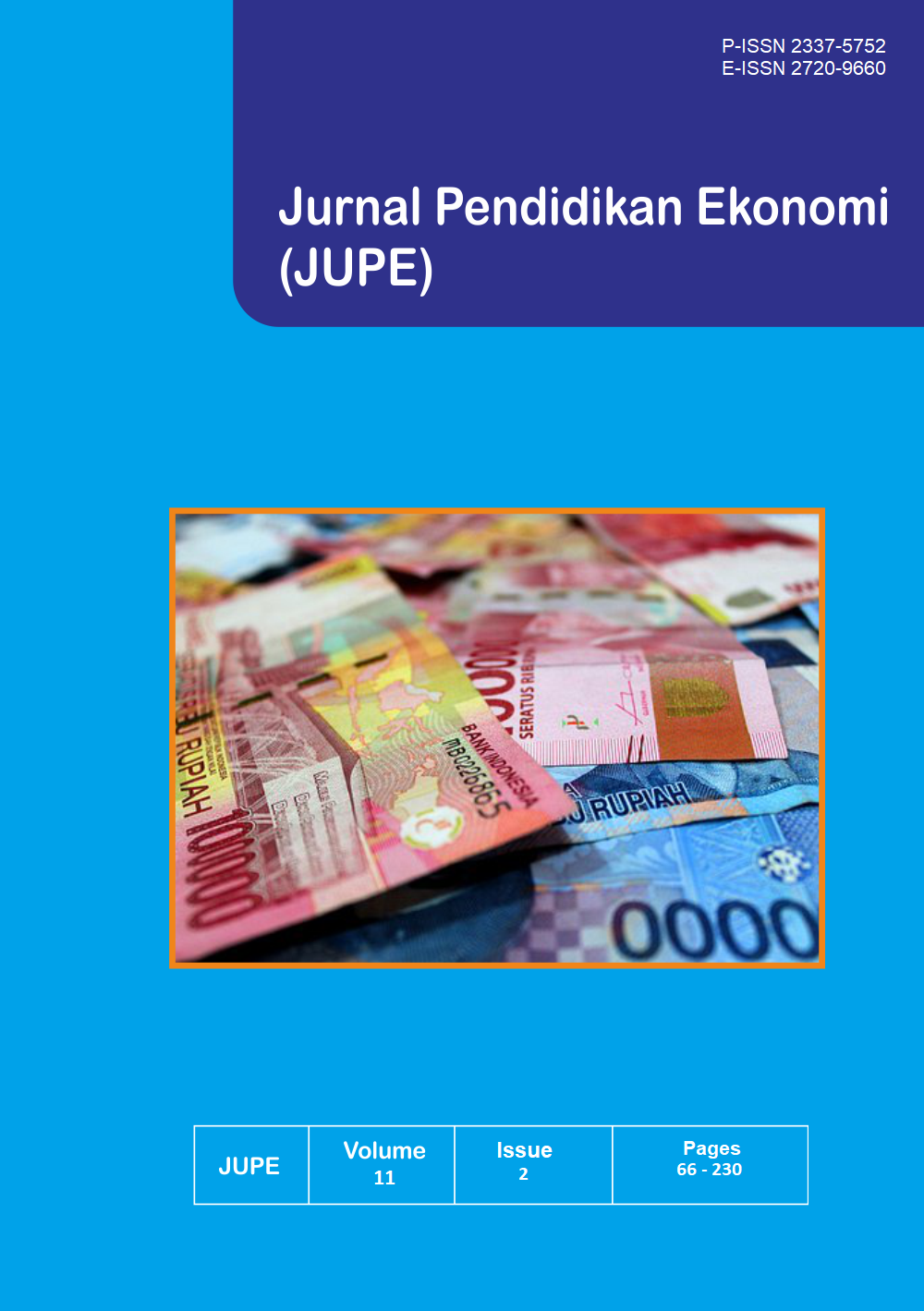Pengembangan Model Pembelajaran Project Based Learning (PjBL) dalam Akuntansi Keuangan
DOI:
https://doi.org/10.26740/jupe.v11n2.p86-91Keywords:
PjBL, financial accounting, HOTs, ADDIE modelAbstract
The development of the Project Based Learning (PjBL) learning model in financial accounting courses aims to increase student HOTs in analyzing elements of financial statements. The model used is ADDIE, in the MSME Accounting management course. The model is applied for one semester. The effectiveness test results show that it is very effective, and the practicality results also show a very practical score so that the PjBL development model in financial accounting can be used without revision.
Downloads
Downloads
Published
How to Cite
Issue
Section
License
Copyright
- Authors retain copyright and grant the journal right of first publication with the work simultaneously licensed under a Creative Commons Attribution License that allows others to share the work with an acknowledgment of the work's authorship and initial publication in this journal.
 Abstract views: 624
,
Abstract views: 624
, PDF Downloads: 614
PDF Downloads: 614











